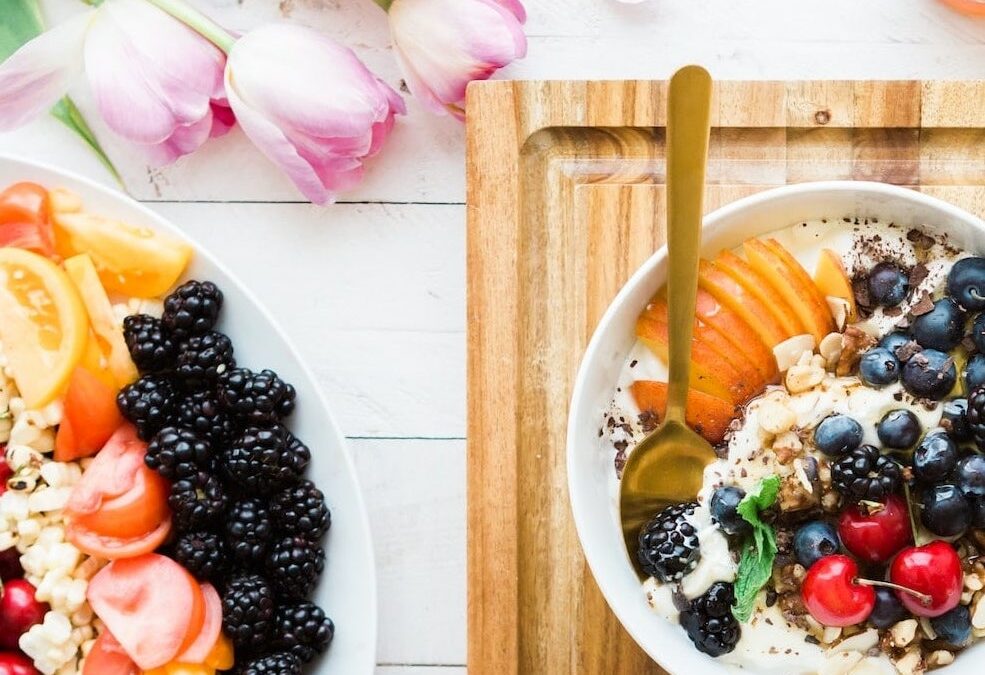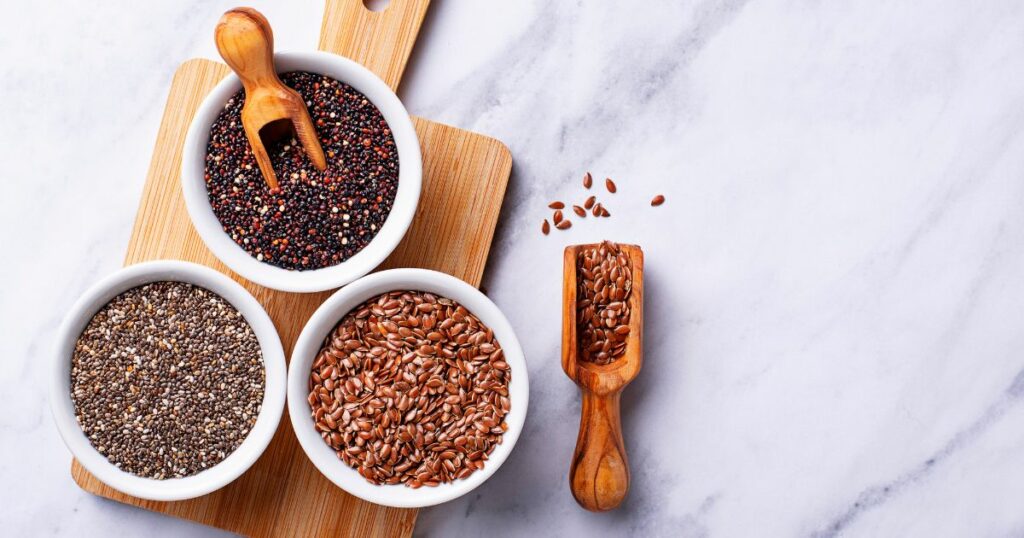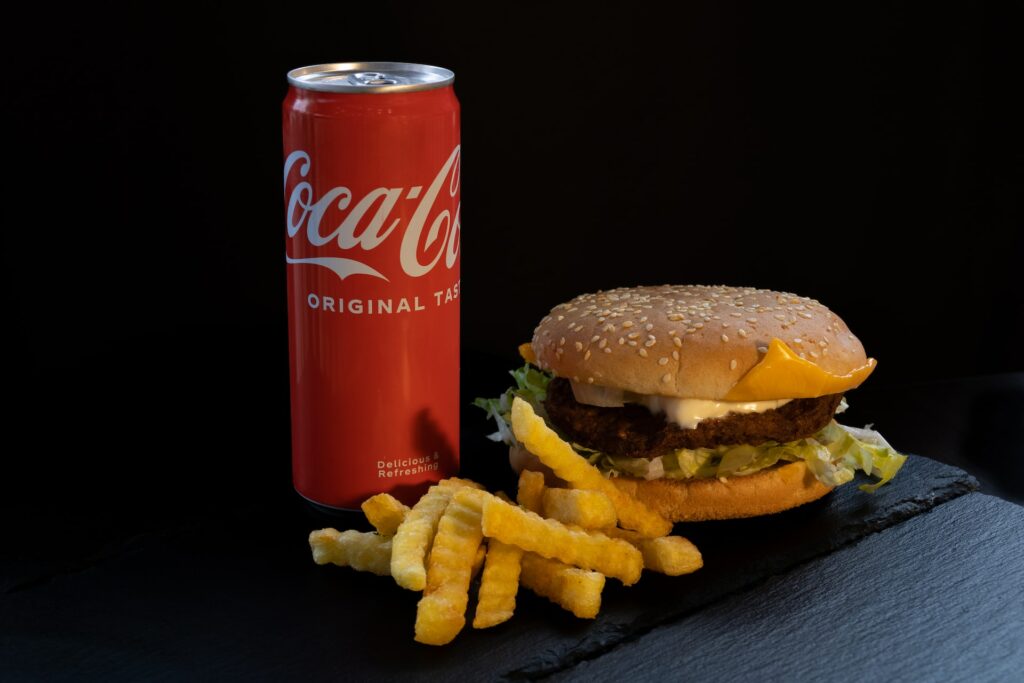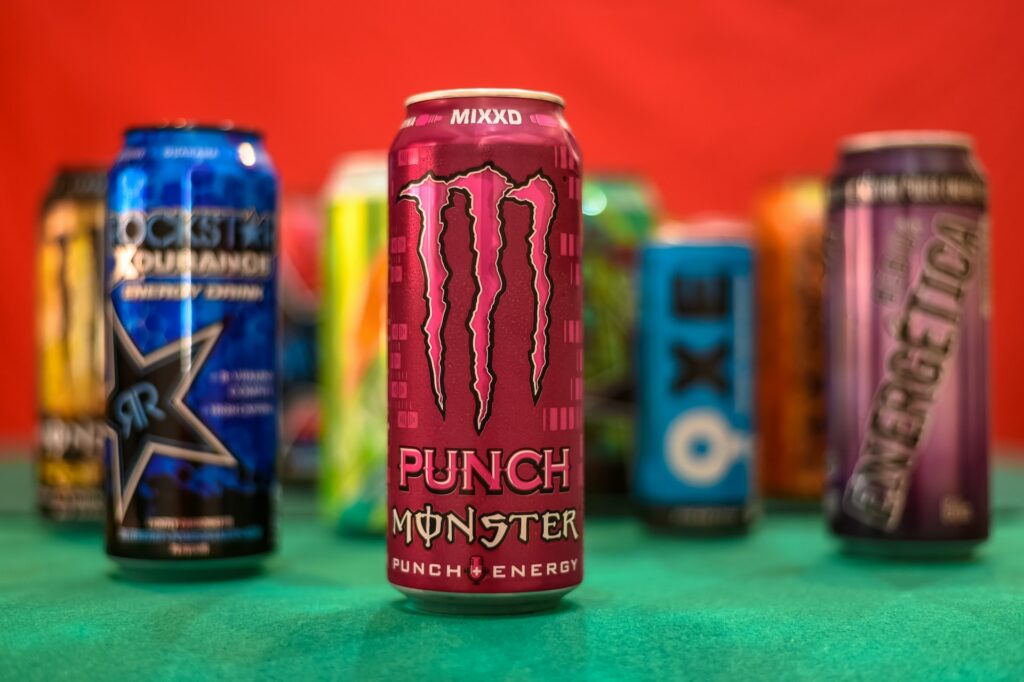
Best Foods and Nutrients to Boost Fertility
Are you struggling to conceive and wondering if nutrition could be the missing link? You’re not alone. About 15-25 percent of couples experience difficulties achieving pregnancy after a year of trying. But here’s some good news: research suggests that nutrition can play a key role in improving fertility for both women and men.
By making some simple dietary changes, you could increase your chances of conception. In this blog post, we’ll explore the foods and nutrients that can help boost fertility and those that may hinder it, starting with the overall dietary pattern. So, grab a healthy snack and let’s dive in!
The Importance of an Anti-Inflammatory Diet To Boost Fertility

Research has shown that maintaining a nutrient-rich, anti-inflammatory dietary pattern is associated with higher fertility in both women and men. Inflammation can negatively impact fertility by disrupting ovulation and menstrual cycles in women and reducing sperm quality and quantity in men.
Individuals who consume inflammatory diets high in fast foods and sugary drinks, and low in fruits and vegetables may experience longer periods of time to achieve pregnancy. On the other hand, those who follow anti-inflammatory diets like the Mediterranean, Prudent, Nordic, and Okinawan diets, have been linked with greater chances of successful pregnancies, whether or not they use fertility treatments.
Anti-inflammatory diets are rich in fruits, vegetables, legumes, whole grains, and lean proteins, and may also include fish, nuts, seeds, olive or canola oil, and soy-based foods. Dairy products, red or processed meats, and sweets are consumed in smaller amounts or none at all.
Anti-inflammatory diets are high in unsaturated and omega-3 fats, fiber, vitamins, and minerals, and low in sugars, refined carbohydrates, and saturated and trans fats. By prioritizing an anti-inflammatory diet, individuals can take important steps towards improving their fertility and overall health.
Foods and Nutrients that may Boost Fertility in Women
Incorporating specific foods and nutrients into a nutrient-rich, anti-inflammatory diet may potentially boost fertility in both women and men. One important recommendation is to consume seafood or seafood alternatives (if vegan or plant-based) like algae-based Omega-3 supplements, chia seeds, flax seeds, and walnuts.
Essential Fatty Acids

There is evidence that omega-3 fatty acids, particularly DHA and EPA, may play a role in improving fertility in both men and women.
Studies have shown that omega-3 fatty acids can improve sperm count, motility, and morphology in men, as well as increase the production of cervical mucus and improve hormonal balance in women. Omega-3s may also improve the quality of eggs in women undergoing fertility treatments.
Additionally, omega-3s have been linked to lower levels of inflammation in the body, which is important for optimal fertility as chronic inflammation can negatively impact reproductive health.
However, more research is needed to fully understand the impact of omega-3s on fertility, and it is always recommended to speak with a healthcare provider before making any significant dietary changes or starting new supplements.
Studies have shown that consuming seafood may increase the chances of getting pregnant, but not all seafood is created equal. For an alternative to seafood, plant-based sources of Omega-3 such as algae-based supplements, chia seeds, flax seeds, and walnuts can provide similar benefits.
Vitamin B-12
Another key nutrient for fertility is Vitamin B12, which is found primarily in animal products. Those who eat a vegan diet should make sure to supplement with Vitamin B12, or consume B12 fortified foods, such as plant-based milks, breakfast cereals, and nutritional yeast.
For women undergoing assisted reproductive technology (ART), having adequate levels of Vitamin B12 may increase the chances of a successful pregnancy. Studies have shown that higher levels of Vitamin B12 in the body are associated with better pregnancy outcomes, while lower levels of the nutrient can lead to infertility and miscarriage.
Vitamin B12 supplements can also benefit male fertility by improving sperm count, motility, and protecting sperm cells from DNA damage. This essential nutrient is crucial for the production of healthy red blood cells and DNA synthesis, which are essential for fetal development.
To meet the recommended daily intake of Vitamin B12, adults should aim for 2.4 mcg per day. Pregnant women require slightly more at 2.6 mcg, and breastfeeding mothers should aim for 2.8 mcg. Vitamin B12 is naturally present in animal-based foods such as meat, poultry, fish, eggs, and dairy products. For those following a vegan or vegetarian diet, Vitamin B12 fortified foods like breakfast cereals, plant-based milk, and nutritional yeast can provide a good source of the nutrient.
Additionally, taking Vitamin B12 supplements may be an effective way to increase levels of this important nutrient, as the body is able to absorb more Vitamin B12 from supplements than from food alone. Incorporating sufficient levels of Vitamin B12 into a balanced, healthy diet can help improve fertility outcomes for both women and men undergoing ART.
Folic Acid Supplementation
Folic acid, also known as Vitamin B9, is important before and during pregnancy to reduce the risk of neurological problems in the developing baby, such as spina bifida. It may also help women have more regular ovulation and get pregnant sooner. Folic acid aids in DNA and RNA synthesis, which is crucial for optimal reproduction. Consult with your healthcare provider or personal dietitian to determine the appropriate dosage of folic acid for you.
Soy Isoflavones

A Harvard study found that folic acid and soy isoflavones can have positive effects on women trying to conceive. Studies have shown that soy isoflavones, plant-based compounds that act like estrogen, may have a positive impact on fertility. In fact, women who consume soy or isoflavone supplements may have a higher chance of successful pregnancies, especially when undergoing fertility treatments. While initial animal studies suggested possible harmful effects, most studies in humans have not found any negative impact of soy on fertility. As such, incorporating soy-based foods into your diet or taking soy supplements may be a helpful addition to your fertility regimen.
Foods and Nutrients that May Improve Men’s Fertility
There is evidence that certain foods and supplements can improve a man’s fertility. Studies have shown that consuming a nutrient-dense diet that is high in fruits, vegetables, whole grains, legumes, and lean proteins like poultry and seafood can improve sperm quality and quantity. Additionally, certain nutrients like Vitamin B12, Vitamin C, Vitamin E, beta-carotene, selenium, and zinc have been linked to higher quality semen.
Antioxidant supplements have also been shown to improve semen quality by reducing DNA damage and increasing motility. It’s important to note that individual results may vary and it’s always best to consult with a healthcare professional before starting any new supplement regimen.
Antioxidant supplements may improve sperm quality. Studies suggest that low levels of antioxidants in men can result in negative impacts on sperm such as DNA damage, membrane damage, and reduced motility. Vitamins C and E, beta-carotene, folic acid, coenzyme Q10, and the essential minerals selenium and zinc are known for their antioxidant properties.
However, excessive amounts of antioxidants can be harmful, and it’s best to consult with a healthcare provider to determine a supplementation protocol tailored to your health needs and goals.
Strategies to Boost Fertility
Eliminate Intake of Artificial Trans Fats

It’s recommended to reduce intake of both trans fats and sugar-sweetened beverages, which may negatively impact fertility. Research suggests that a higher intake of trans fats can lead to a higher risk of ovulatory infertility, while sugary beverages can cause insulin resistance and disrupt menstrual cycles.
Reducing intake of trans fats may improve fertility, according to Harvard researchers. Trans fats are naturally found in dairy and meat from ruminant animals and in partially hydrogenated oils. However, artificial trans fats are being phased out of the U.S. food supply due to their harmful effects on heart health. While dairy products containing trans fats do not seem to negatively affect female fertility, a healthy vegan or mostly plant-based diet can easily eliminate the consumption of trans fats.
Eliminate Added Sugars and Energy Drinks

Sugar-sweetened beverages like soda and energy drinks may lower fertility in both men and women, according to several studies. Consuming as few as seven drinks per week can have an impact. However, diet sodas and fruit juice do not seem to have the same effect. One possible explanation for this link is that sugar can interfere with women’s reproductive hormones, ovulation, and egg maturation, while in men, it may lead to lower sperm concentration. However, I recommend avoiding artificial sweeteners due to their potential negative impact on the gut microbiome. Studies show that the mother’s microbiome influences the baby’s microbiome.
Overall, Add More Plants on Your Plate to Boost Fertility

Eating a diet rich in plants can have several benefits for fertility. Here are some ways eating more plants can boost fertility:
- Improving Hormonal Balance: Plant-based foods are rich in vitamins, minerals, and antioxidants, which help balance hormones that are crucial for fertility. For example, foods rich in Vitamin C, such as leafy greens and citrus fruits, can boost progesterone production and support the menstrual cycle.
- Reducing Inflammation: Chronic inflammation can negatively impact fertility by damaging reproductive organs. Plant-based foods are rich in anti-inflammatory compounds that can reduce inflammation and improve fertility.
- Supporting Ovulation: Plant-based foods are a good source of complex carbohydrates and fiber that can help regulate blood sugar levels, which is essential for healthy ovulation. Studies have shown that a diet rich in whole grains, fruits, and vegetables can improve ovulatory function.
- Boosting Sperm Health: Plant-based diets are high in antioxidants and phytochemicals that can improve sperm health. For example, foods rich in folate, such as leafy greens, can boost sperm motility.
- Reducing Exposure to Toxins: Plant-based diets are typically lower in toxins, such as pesticides and heavy metals, that can negatively impact fertility. By reducing exposure to these toxins, plant-based diets can improve reproductive health.
Overall, incorporating more plants into your diet can improve fertility by supporting hormonal balance, reducing inflammation, supporting ovulation, boosting sperm health, and reducing exposure to toxins.
To Sum It Up
It can be challenging to deal with fertility issues, but research shows that nutrition can be helpful for both men and women. A diet that is high in nutrient-dense, anti-inflammatory foods such as fruits, vegetables, legumes, whole grains, lean proteins, and healthy fats are some of the best foods and nutrients to boost fertility.
If you need help planning and making nutritious changes to your meals and supplement regimen to boost your fertility, schedule an appointment with me for a personalized plan, I would love to help.
